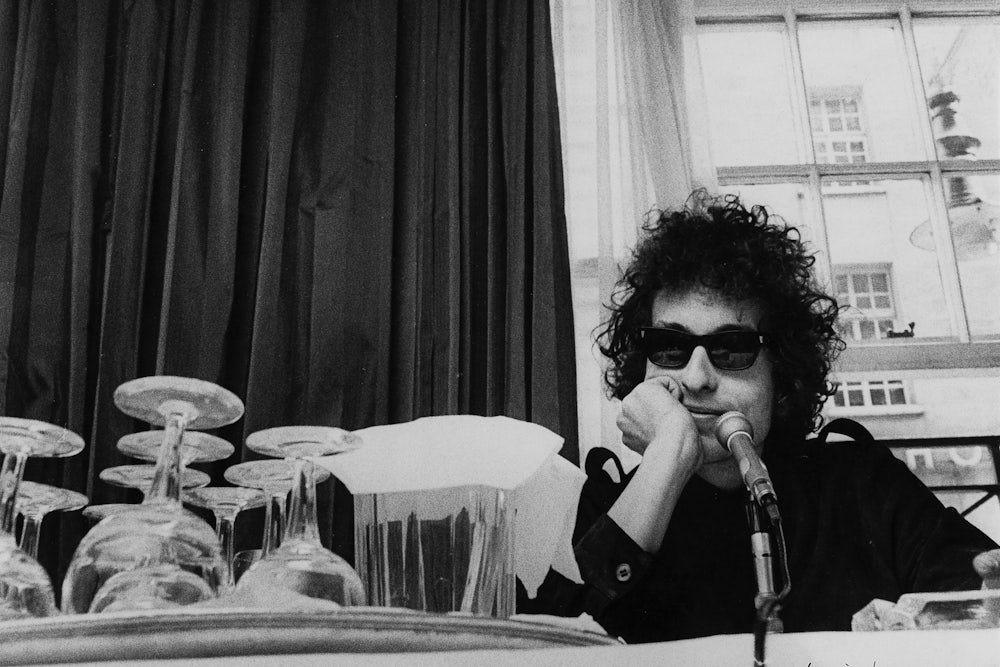An American has won the Nobel Prize in Literature for the first time in 23 years—but in a shocking decision, songwriter Bob Dylan—not novelists Philip Roth, Don DeLillo, or Thomas Pynchon—won “for having created new poetic expressions within the great American song tradition.” Dylan’s citation also compared him to Homer—the Swedish Academy had to reach back 3,000 years to find a precedent.
Born Robert Zimmerman in 1941, Dylan was the enfant terrible of the New York City folk scene—a impish trickster who annoyed (and stole from) many of his elders, particularly Dave Van Ronk and Pete Seger. Dylan first broke out in the early 1960s as a part of a growing movement of songwriters who were writing and performing topical material about the Civil Rights Movement and other current events. Dylan has been labeled a “topical songwriter” since that period, but he spent only a short period writing songs like “When The Ship Comes In” and “The Times They Are A Changin’”
Instead, Dylan quickly became annoyed by the constraints of folk music and pushed into other areas, writing more poetic and psychedelic material and less overtly political songs. This culminated when he famously “went electric,” with the Paul Butterfield Blues band in 1965, an event that split the folk movement down the center. During that period, Dylan was also incredibly inspired, churning out cutting edge music on Bringing It All Back Home, Highway 61 Revisited, and Blonde on Blonde.
But in 1966 Dylan was in a motorcycle accident (allegedly), and quit it all. He spent the rest of the 1960s holed up in Woodstock with the musicians who would become The Band churning out traditional music. When he returned, he was always noticeably out of fashion (or maybe just ahead of it) until the mid-70s: In 1967, he released an album of very traditional-sounding folk music, John Wesley Harding, in 1969 he made Nashville Skyline, a country album, and in 1970, he released Self-Portrait, one of the most beguiling albums ever made. (The outtakes from it are extraordinary. The album is not.)
Dylan’s last great album, Blood on the Tracks, which was inspired by his divorce from model Sara Lowndes, came in 1975. Dylan spent the next two decades as a kind of musical wanderer: He flirted, over the course of three mostly terrible albums, with Christianity; he toured with Tom Petty and joined the Traveling Wilburys.
In 1997, Dylan entered another extraordinary period, releasing three of his best albums—Time Out of Mind, Love and Theft, and Modern Times—over a nine year period. His last two albums have been covers of Frank Sinatra songs.
